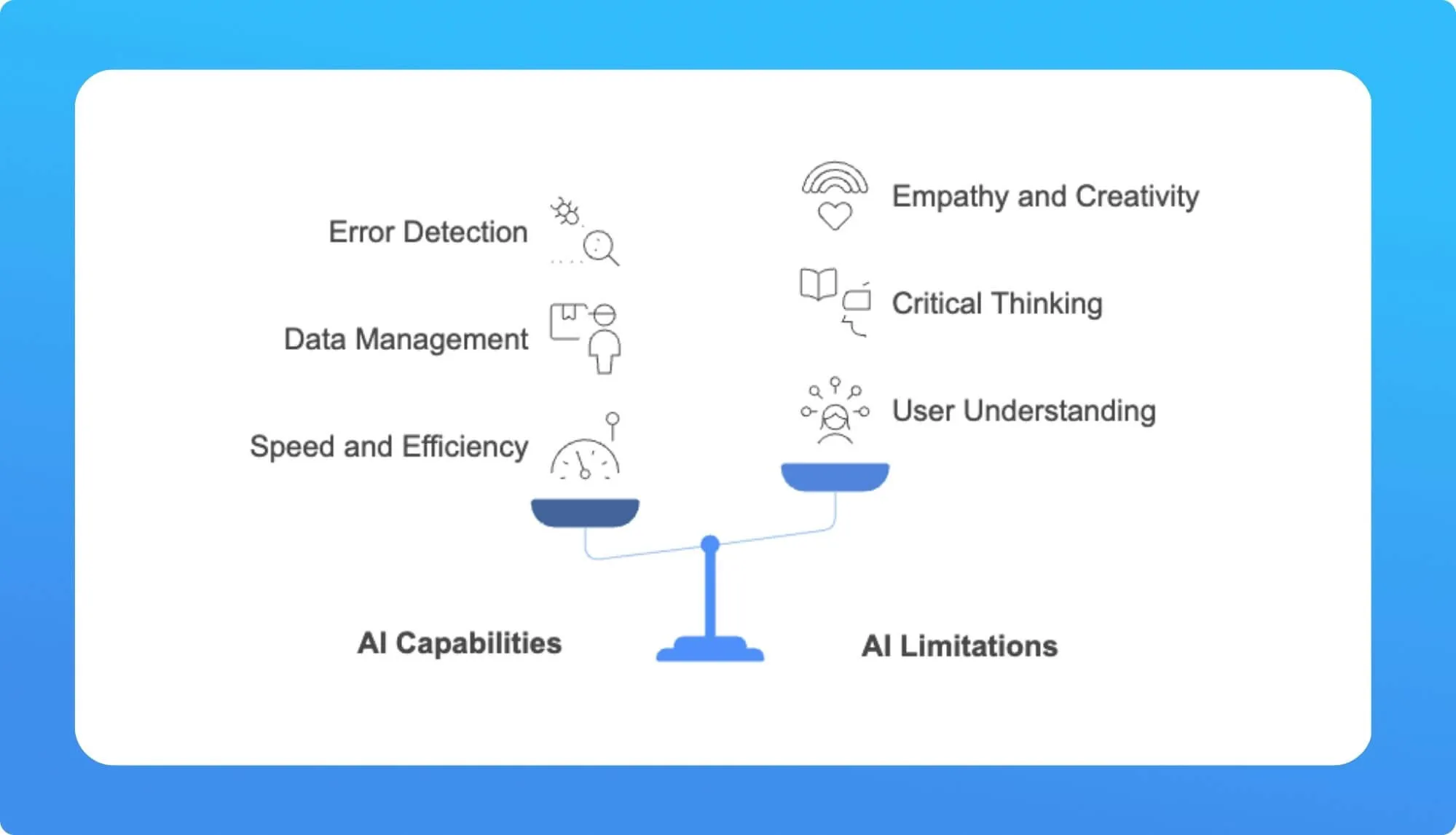Will AI Replace Quality Analysts?
AI is changing how quality assurance is done, but it can’t replace human testers. QA pros who adapt will find even more opportunities ahead.
Table of contents

AI is changing how quality assurance is done, but it can’t replace human testers. QA pros who adapt will find even more opportunities ahead.
Quality Analysts, sometimes called QA specialists or testers, play a vital role in ensuring that products—especially software and digital services—work correctly. Their job is to test systems, find bugs, ensure consistency, and make sure everything meets standards before it reaches the customer.
But as artificial intelligence (AI) becomes more advanced, many companies are turning to automated testing tools and AI-powered systems to speed up the process. So it’s only natural to ask:
Will AI replace Quality Analysts?
The short answer? AI is changing how quality assurance is done, but it’s not replacing the human touch anytime soon. In fact, those who learn how to work with AI will have more opportunities than ever before.
Let’s break this down in plain language.

AI is already being used in quality assurance, especially in software testing. It helps companies run tests faster, detect issues earlier, and reduce human errors. Here are a few ways AI is showing up in QA work:
In the past, Quality Analysts would manually click through websites or apps to test every button and feature. Now, AI tools can automatically do this.
For example, AI-based test scripts can:
This kind of automation helps teams work faster—but it doesn’t remove the need for people entirely.
AI can analyze large sets of test data and find patterns that humans might miss. This is especially useful when:
But AI doesn’t know why a bug is important—or how it affects real users. That still requires a human brain.
AI is also being used in continuous testing—which means software is being tested all the time, even while it’s running live. AI tools can:
This reduces downtime and catches problems early. But again, someone still needs to interpret results, decide what matters, and figure out the next step.
Let’s keep this simple.
In short, AI is a powerful assistant—but it still needs a human in charge.

The honest answer? It depends on what type of QA work you’re doing—and how willing you are to learn new skills.
Companies may hire fewer QA specialists to run basic tests, but they’ll value QA professionals who can think critically, adapt, and lead testing strategies in collaboration with AI tools.
“AI in software testing can help better understand the business problems they’re solving, find bugs faster and more consistently, improve the quality of their testing, and save time by automating menial tasks.
However, manual software testing has limitations, and many repetitive tasks can’t be automated because they require human intelligence, supervision or judgment”.
- Martin Koch, QA Mentor & Process Coordinator at aqua

If you’re a Quality Analyst, here’s how to stay valuable in a world where AI is doing more of the grunt work:
Understand how tools like Testim, Applitools, or BrowserStack work. You don’t need to code deeply—you just need to learn how to use the software that’s becoming part of the QA toolkit
.
AI can tell you what’s broken, but only a human can tell if something feels right to a user. Learn more about:
These are areas where humans always outperform machines.
Many QA professionals are moving into automation and workflow testing using tools like:
You don’t need to learn coding, No- Code platforms let you build smart, automated systems visually, which is perfect for QA professionals who want to grow without becoming software engineers.
Here are a few alternative careers for Quality Analysts:
These jobs offer better pay, more flexibility, and room for growth—especially for people who are willing to learn digital tools and adapt.
If you’re doing the same repetitive testing tasks every day, then yes, AI may take over that part of your job. But if you’re ready to step up—to become the person who uses, supervises, and improves these AI systems—then you’re in a powerful position.
This isn’t the end of QA jobs. It’s the beginning of a new kind of QA work—one that’s smarter, faster, and more rewarding.
And if you want to be part of that future, we can help you get there.
Looking to re-invent yourself and turn your talent into a career? Stay up to date with the latest.